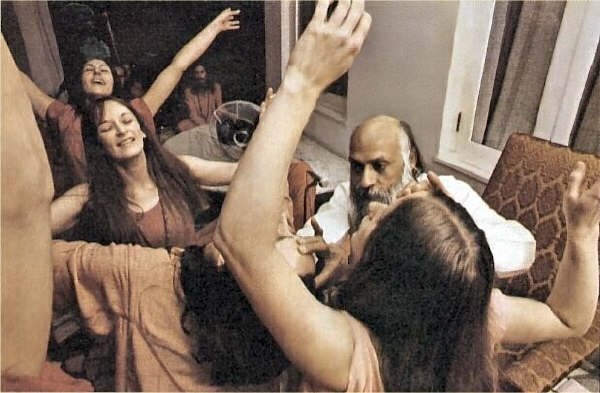A buddha sleeps dreamlessly because nothing is incomplete. There is no desire, no passion. Nothing arises and nothing remains; things pass as if in front of a mirror. A woman passes and Buddha looks but no passion arises. The woman has passed, the mirror is vacant again; there is no trace, no mark of it. He is dreamless.
Even a child is not dreamless, even a child has desires. Maybe the desire is not for a woman, it may be for a new toy or for something else, but even a child dreams. Even a cat, a dog dreams.
Look at a cat and you will feel it is dreaming of rats. It is jumping, catching; it is sometimes frustrated and sometimes very happy if the rat is caught.
Look at a dog sleeping. You can feel it is dreaming about flies, about bones, about fighting. Sometimes it is tense, sometimes relaxed. The sleep is disturbed.
To look at a buddha while he is asleep is very beautiful, so Ananda used to watch. Buddha would go to sleep, and Ananda would sit and look at him. He was such a silent pool of being. Nothing was incomplete, everything, every moment was complete and perfect. There was no dream, there were no traces left; his mind was a clean mirror. The stream of consciousness was never muddled, it was crystal clear. Ananda became puzzled because Buddha always slept in the same posture.
He would remain the whole night in the same posture; he would not change, he would remain in the same posture. That posture has become very famous — it is called the lying posture. You may have seen Buddha's pictures. There are many statues in Ceylon, China, Japan and India. If you go to Ajanta, there is a statue of Buddha lying down. That posture, how Buddha lay, has been reported by Ananda. Buddha slept in the same posture the whole night, not even changing sides.
So one day Ananda asked, "Bhagwan, everything is okay, but one thing puzzles me: you remain in the same posture the whole night. Are you asleep or not? If someone is asleep he will change his posture. Are you asleep or not? Even while you are asleep or appear to be asleep, it appears you are alert. It seems you know what the body is doing; you will not even change your posture unconsciously.
Buddha said, "Yes, when the mind is silent, not dreaming, only the body sleeps. Consciousness remains alert." Krishna has said to Arjuna in the Gita, "While you sleep the yogi remains alert." Even in the night his sleep is not sleepy. His sleep is only in the body, a rest in the body, a relaxation in the body; his consciousness is alert. In reality a yogi's consciousness needs no relaxation; it is always relaxed, There is no tension. Relaxation is needed because of tension.
You are so tense the whole day, your consciousness has to be relaxed. A yogi's body relaxes because the body gets tired. His body is a mechanism; his consciousness is always alert, continually alert. It is a continuum of alertness.
When your consciousness becomes a continuum
there are no gaps in consciousness; when there is no darkness within you, your whole inner temple has become enlightened. The light has reached to every corner and no part of your inner house is in darkness. You are a mukta, a free man.
OSHO


